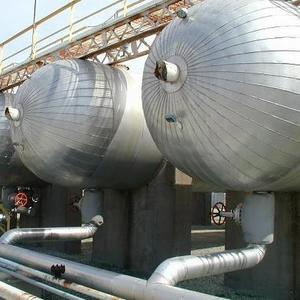Biodiesel back online at Buckeye Hartford after meter repairs

Photo: Gulf Hydrocarbon Inc.
August 2, 2013
BY Ron Kotrba
After going down for repairs late last week, the meter at Buckeye Terminal’s Hartford, Ill., biodiesel terminal has been repaired and proven accurate, and it is back in service allowing biodiesel deliveries to restart Aug. 1, said Jess Hewitt, president of Gulf Hydrocarbon, the terminal’s biodiesel supplier.
“We applaud the Buckeye Pipeline terminal employees for obtaining the part so quickly and managing the repairs and proving of the meter,” Hewitt said. “Buckeye predicted the meter would be back in service by close of business on July 31 and they delivered us a proven meter fully functioning for high-speed deliveries.”
Gulf Hydrocarbon has informed its customers and suppliers that the terminal is back online to splash blend biodiesel 24/7 for Illinois and Missouri markets. Hewitt said the downtime could cost Gulf Hydrocarbon the loss of up to nearly 30,000 gallons of biodiesel sales a day.
Advertisement
Advertisement
Related Stories
ADM and Mitsubishi Corp. on March 27 announced the signing of a non-binding memorandum of understanding (MOU) to form a strategic alliance to explore potential areas of future collaboration across the agriculture value chain.
The International Air Transport Association has established the Civil Aviation Decarbonization Organization to manage the IATA-developed Sustainable Aviation Fuel (SAF) Registry when it is released.
LRQA, the leading global assurance partner backed by Goldman Sachs Alternatives, has acquired EcoEngineers, a U.S.-based consulting, auditing and advisory firm with an exclusive focus on the energy transition.
The USDA on March 25 announced it will release previously obligated funding under the Rural Energy for America Program To receive the funds, applicants will be required to remove “harmful DEIA and “far-left climate features” from project proposals.
BIO, in partnership with Kearney, a global management consulting firm, on March 24 released a report showing the U.S. bioeconomy currently contributes $210 billion in direct economic impact to the U.S. economy, excluding healthcare.
Upcoming Events










